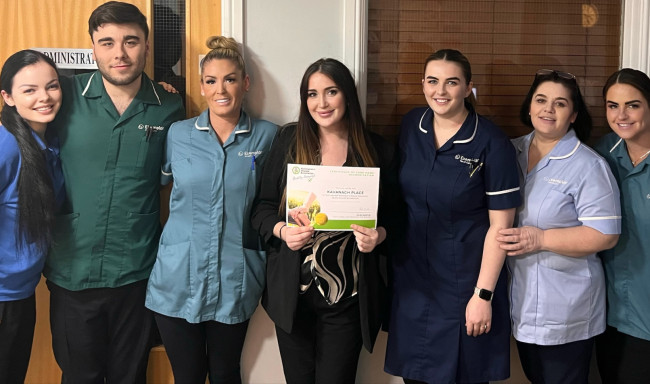Keeping the mouth healthy is extremely important for people affected by Huntington’s disease.
High sugar and fat diets alongside the difficulties of brushing teeth due to choreic movements, apathy and dysphagia make keeping teeth clean and healthy a challenge for those affected by the disease and their carers. In this blog, Finbar O’Mahony, Consultant in Special Care Dentistry at Lancashire Teaching Hospitals NHS Foundation Trust, advises on how best to look after oral health in Huntington’s disease.
Dental advice for all
“I give these first three pieces of advice to all my patients, whether they have Huntington’s disease or not"
- Brush your teeth twice a day with a fluoride toothpaste
- Restrict sugary drinks and snacks to mealtimes
- Visit a dentist regularly
These pieces of advice are simple but are key to maintaining good oral health.
Why do people with Huntington’s have issues with oral health?
People with Huntington’s disease often experience issues with their oral health. This includes an increased incidence of dental decay and gum disease.
There are a number of reasons for this:
- Diet - High energy food supplements or frequent snacking on high-calorie foods are recommended to people with Huntington’s disease.
- Dry mouth – Many of the drugs used to treat Huntington’s disease symptoms cause a dry mouth.
- Oral hygiene – As the disease progresses it becomes more difficult to have the manual dexterity to provide high-quality oral care. In the advanced stages, many patients will be dependent on care staff to provide oral hygiene measures.
- Access to dental care – Access to NHS dentists can be difficult depending on where you live. Many people with advancing Huntington’s disease may need specialist facilities and transport to appointments.
Tips on maintaining a healthy mouth
At the Special Care Dentistry department at Lancashire Teaching Hospitals NHS Foundation Trust, we see many patients with Huntington’s disease. These are some of the tools and products, which our patients find useful.
- Always choose a toothbrush with a small head. Consider using a child’s toothbrush with soft bristles.
- Electric toothbrushes are useful for those with poor manual dexterity, poor grip or poor coordination.
- Toothbrushes can be adapted. This enables individuals to maintain their own oral care. A quick and cheap idea is to insert a toothbrush into foam piping, a sponge/tennis ball or a strap. This can be useful for those with a poor grip. Your dentist or occupational therapist may be able to help you with these adaptions.



- Cleaning your own dentures may become more difficult as the disease progresses. A simple tip is; using your stable hand, clean the dentures on a cupped suction nail brush.
- The Dr Barman’s Super brush is a 3-headed toothbrush. It cleans all three surfaces simultaneously; it’s ideal for when tooth brushing becomes a struggle or when you need help from someone else to provide oral care.
- Suction toothbrushes can be considered for those who are at high risk of aspiration. It removes any excess saliva while tooth brushing.
- To remove any debris from the mouth, use the MouthEze Cleansing Tool.
- Your dentist may prescribe a high fluoride toothpaste and mouthwash. They may also be able to put high fluoride varnish on your teeth every few months. Fluoride makes your teeth stronger and helps prevent decay.
- People who are at risk of aspirating should use a toothpaste, which is non-foaming or Sodium Lauryl Sulphate (SLS) free. This will help reduce the risk of aspiration.
- If a caregiver is struggling to access a person’s mouth, try the finger guard or a mouth rest. Alternatively, try the two-toothbrush technique – use one brush to hold back the cheek or lip and another toothbrush to clean the teeth. Many people find this useful. We often use this to look at patients’ teeth in clinic.
- If suffering from a dry mouth: If able, sip water, avoiding any acidic drinks or sparkling water. If you are unable to sip water, a toothbrush or MouthEze can be dipped in water at regular intervals to moisten the mouth. Avoid dry, salty or spicy foods. Use a dry mouth moisturising product – either a spray or gel alongside an SLS free/non-foaming toothpaste. Oralieve gel or BioXtra gel are popular with many patients.
You can find further information and advice on maintaining good oral care the Huntington’s Disease Association’s Eating Well Guide, you can also find useful resources at Mouth Care Matters.
If you are affected by Huntington’s disease and are in need of support or advice please get in touch with us on 0151 331 5444 or email info@hda.org.uk.








